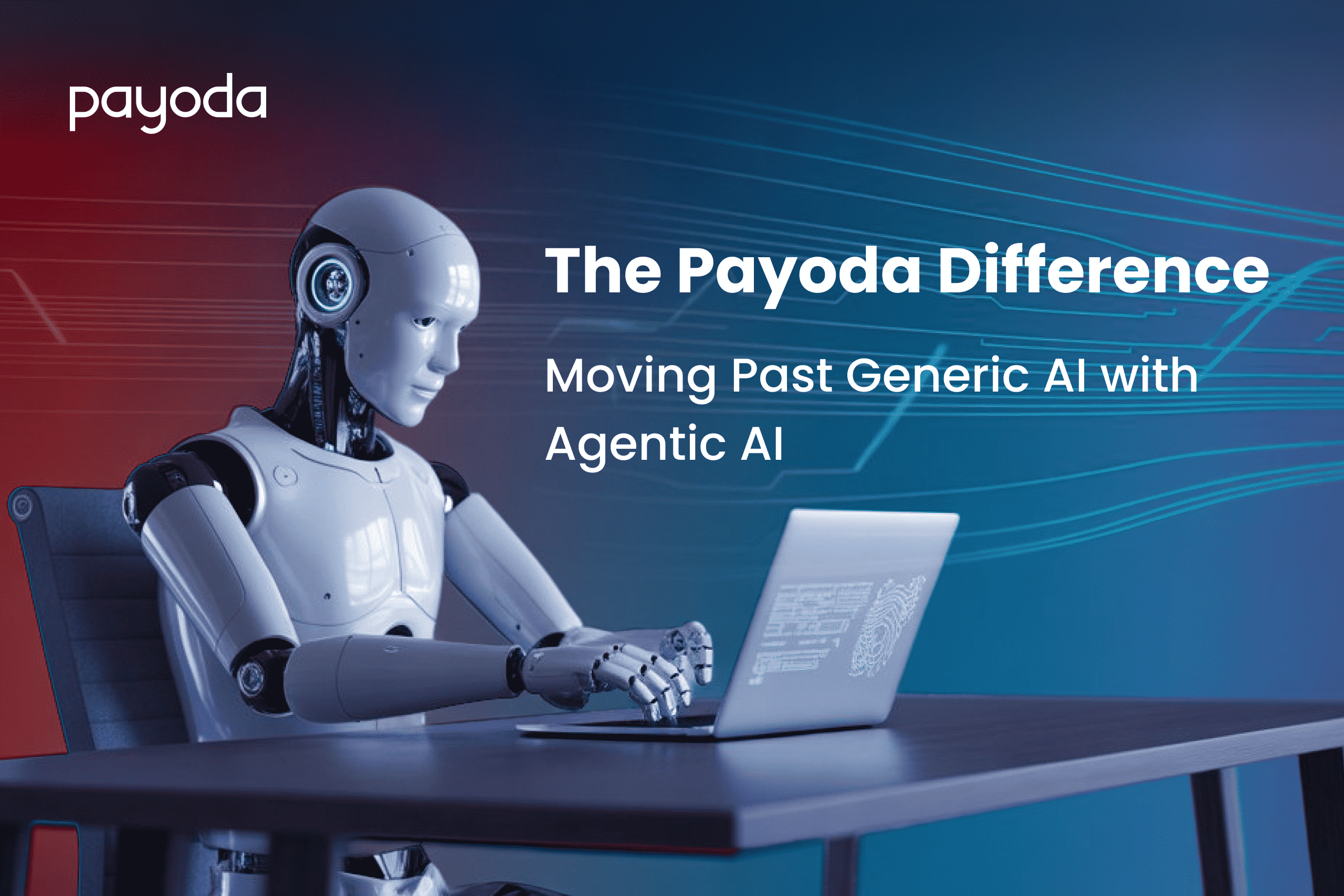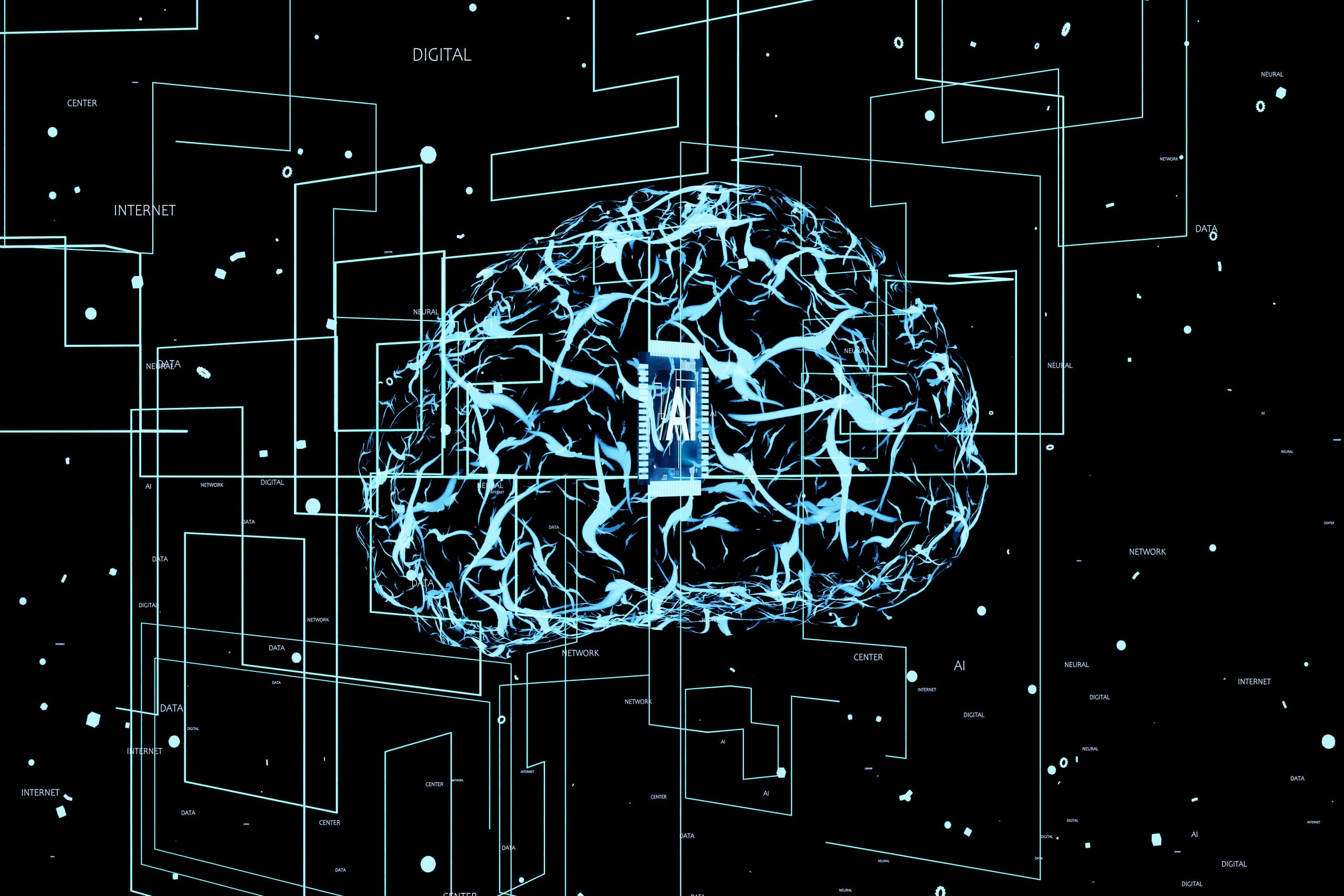
Introduction
Organizations across industries are pressured to respond to customer needs, regulatory changes, and competitive markets with greater speed and integrity. Many have turned to AI for assistance. However, much of what exists today is generic AI. These tools automate mundane processes and generate data-driven insights but stop at task execution. They are unable to adapt, make contextual decisions, or even deliver results without the intervention of a human being.
This is where agentic AI for enterprise enters the scene. Instead of functioning within strict boundaries, agentic AI puts intelligent agents to work that collaborate, adapt, and learn to obtain results. Enterprises looking for results in the real-world, agentic AI surpasses automation and touches autonomy. Payoda brings this change to life for enterprises. Through domain-specific expertise and adaptable architectures, Payoda helps build agentic AI systems that bring measurable value where generic solutions fail.
The Shift from Generic AI to Agentic AI
What are Generic AI Solutions?
Generic AI can be categorized into 3 main categories: Rules-based chatbots that provide limited responses, predictive analytics platforms that require human interpretation, and basic task automation that follows predefined workflows
Some of the common limitations of using generic AI are as follows:
- Lack of contextual awareness.
- Dependence on human monitoring and oversight.
- Inability to collaborate across workflows.
- Difficulty adapting to new business conditions.
What is Agentic AI in Business?
Agentic AI explores a more elevated form of enterprise automation. Unlike traditional AI or RPA, which perform tasks identified for them by humans, agentic AI relies on intelligent agents that take the initiative and react to real-world conditions. These AI agents are goal-oriented and work to determine objectives and find the best procedures to achieve those objectives.
For example, instead of just processing invoices, the agent can decide on urgent payments first, raise the concern of irregularities, and recommend a course of action. With agentic AI, the system works in a context-aware manner. It understands the broader context of the environment that the task is embedded in to make decisions. Thus, triggering actions like rerouting workflows when one party to a supply chain has unexpected delays or responding to new compliance regulations.
Such systems are cross-enterprise application collaborating agents, also linking ERP, CRM, HR, ITSM, and other department-led handoffs with other agents. An agentic AI will adjust processes over time using its adaptive prowess, based on feedback and observed results. Therefore, it reduces recurrent inefficiencies and further minimizes human intervention in the same repetitive or complex workflows. Agentic AI presents opportunities in customer service, IT operations, HR, and more.
By providing workflows with some autonomy and intelligence, an agentic AI moves automation beyond task execution to proactive decision-making. Hence, it improves efficiency and allows employees to focus on high-value work.
Traditional AI versus Agentic AI
- Traditional AI Workflow: Input → Predefined Algorithm → Output
- Agentic AI Workflow: Goal → Context Understanding → Multi-Agent Collaboration → Continuous Feedback → Adaptive Outcome
Why Agentic AI Matters Now
Several factors compel the transition toward agentic AI. The shift is not just about adopting a new technology but about aligning enterprise operations with current market demands and future-proofing strategies.
- Business complexity: Operations are not linear anymore. Adaptive systems are required that can change as conditions change.
- Data overload: Enterprises are generating and processing data in amounts that humans alone can never deal with.
- Compliance requirements: Regulatory frameworks demand transparency, auditability, and faster reporting.
- Workflow evolution: AI workflow automation tools that can manage end-to-end processes provide clear advantages over task-level automation.
Payoda’s role is to help organizations integrate these capabilities by aligning agentic AI with existing workflows and systems.
Agentic AI Use Cases Across Enterprises
Human Resources and Employee Support
- Generic AI: Processes leave forms.
- Agentic AI: Conversational chat agents embedded in collaboration platforms that understand context and policies and respond instantly.
Customer Experience
- Generic AI: Provides template-based recommendations.
- Agentic AI: Anticipates needs, resolves issues proactively, and tailors interactions in real time.
Financial Services
- Generic AI: Flags unusual transactions.
- Agentic AI: Evaluates transactions against customer history, compliance rules, and risk assessments, responding dynamically.
Healthcare
- Generic AI: Tracks patient appointments.
- Agentic AI: Monitors patient health data, suggests adaptive treatment plans, and engages in follow-up automatically.
Manufacturing
- Generic AI: Schedules routine maintenance.
- Agentic AI: Predicts machine failures, recommends optimized schedules, and adjusts supply chain planning in real time.
Agentic AI in Business: Workflow at a Glance
Agentic AI differs from traditional automation by introducing decision-making autonomy within workflows. Instead of waiting for human prompts at every stage, AI agents can independently take actions, escalate when necessary, and optimize outcomes in real time.
The Payoda Difference
Most AI workflow automation tools are still generic. They run defined scripts but are not scalable to dynamic, multi-agent intelligence. Payoda’s methodology is established on deploying AI agents for businesses that are adaptive, collaborative, and measurable.
Key Differentiators:
- Multi-agent frameworks: Domain-specific agents for HR, IT, finance, and other workflows that work together to deliver outcomes.
- Domain knowledge: Industry experience allows for quicker customizing.
- Scalability: Solutions are engineered to integrate with legacy and newer systems.
- Compliance by design: Security and auditability are built into the system.
Measurable Business Outcomes with Agentic AI
Organizations adopting agentic AI in business should expect measurable results, not abstract promises.
Metrics to Track:
- Efficient resolutions in reduced times.
- Cost efficiency from automation of complex tasks.
- Reduced human errors in automated workflows.
- Increased employee or customer adoption rates.
- Improved response compliance.
This focus on outcomes demonstrates that measurable business outcomes AI extend beyond efficiency to trust and compliance. Payoda ensures that each agentic AI use case is tied to defined KPIs, allowing enterprises to quantify value from their investments.
Challenges and How Payoda Addresses Them
Adopting agentic AI in business comes with challenges:
- Integration with legacy systems: Older infrastructures may not support modern AI.
- Data privacy and compliance: Sensitive information requires secure processing.
- Change management: Teams may resist or struggle with new processes.
Payoda’s Approach:
- Deploy adaptable AI agents that integrate with legacy and modern systems alike.
- Embed compliance into workflows for data security and regulatory alignment.
- Provide education and adoption support for internal teams.
Conclusion
The distinction between generic AI and agentic AI in commercial and business services is well established. Generic AI operates on a fixed algorithm merely to carry out a specified task, whereas agentic AIs learn, adapt, and may collaborate with each other or with humans in order to obtain outcomes. As organizations face more complex demands, agentic AI becomes critical for measurable and sustainable results.
Payoda helps organizations transcend generic AI solutions by deploying agentic AIs in a real environment that can adapt to business needs, integrate seamlessly, and deliver value in terms of concrete outcomes. The future of enterprise AI belongs to those organizations that invest in AI agents designed to think and act with autonomy.
FAQ’s
- What makes agentic AI different from traditional automation tools?
While traditional automation tools run processes based on preset workflows, agentic AI agents for enterprises adapt to context, collaborate via workflows, and can adjust decisions to meet changing business objectives.
- How can enterprises measure the value of agentic AI?
The value of agentic AI in business can be measured by KPIs such as faster resolution times, cost reductions, compliance accuracy, higher adoption, and reduced errors.
Talk to our solutions expert today.
Our digital world changes every day, every minute, and every second - stay updated.









